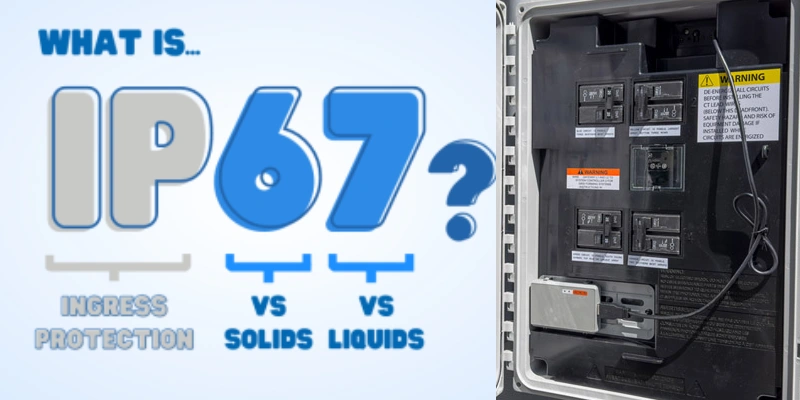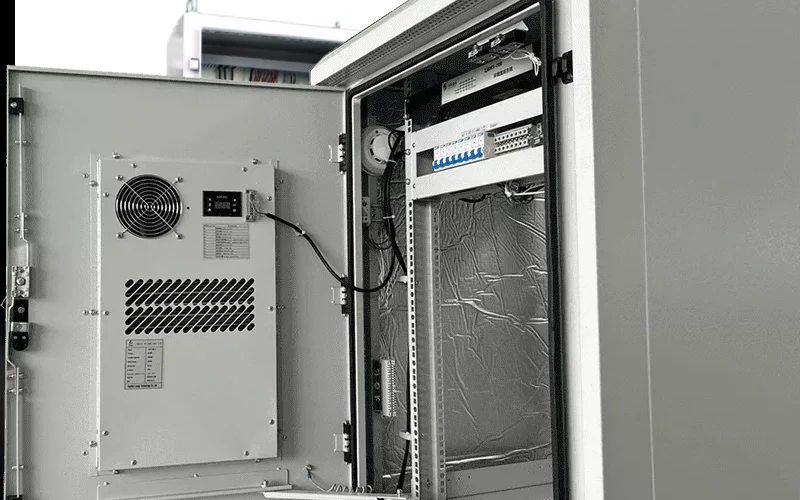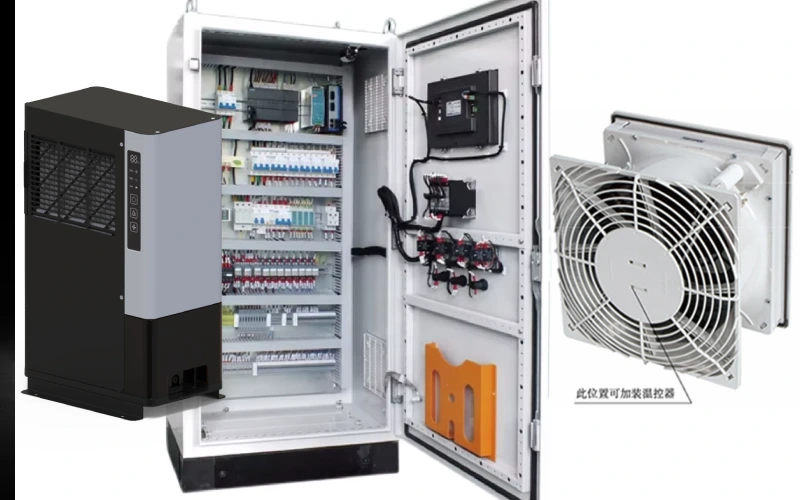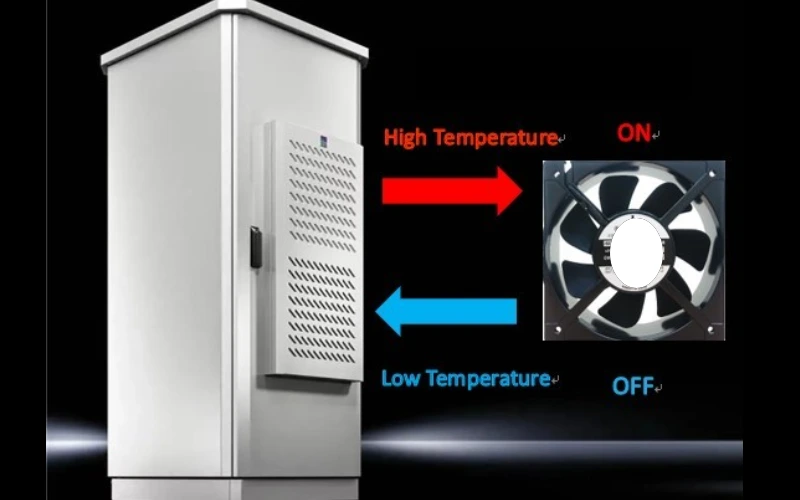You might wonder, what is the IP67 rating and what does it mean for electrical cabinet enclosures? This rating indicates that your enclosure effectively protects electrical equipment from dust and water. Specifically, the IP67 rating ensures the enclosure is dust-tight and can withstand being submerged underwater up to one meter for thirty minutes.
Many industries choose IP67 enclosures because they require robust protection in factories, outdoor environments, or other harsh conditions. The IP rating system is recognized worldwide and helps ensure the safety of your electrical equipment enclosure. Linkwell provides high-quality electrical enclosures with reliable protection for your electrical cabinets.
Key Takeaways
- IP67 rating means the enclosure keeps out all dust. It can also go under water up to 1 meter for 30 minutes. This protects electrical equipment from tough conditions.
- Picking an IP67 enclosure gives strong dust and water protection. It is great for outdoor, industrial, and flood-risk places.
- IP67 has better water resistance than IP65 and IP66. Those only protect against splashes and jets, not being underwater.
- Linkwell’s IP67 enclosures use strong materials like stainless steel and aluminum. They have safety certifications and can be made to fit different needs.
- Pick the right IP rating by checking your area’s dust, water, and weather risks. This keeps your equipment safe and saves money.
What Is the IP67 Rating

IP Rating Meaning
When you shop for electrical cabinet enclosures, you may see the term IP rating. IP means “Ingress Protection.” This system tells you how well an enclosure keeps out dust and water. The IP rating has two numbers after “IP.” The first number shows how much it protects against things like dust. The second number shows how much it protects against water. You can find IP ratings on many outdoor products. These ratings help you pick the right enclosure.
The IP rating system uses rules from international standards. The International Electrotechnical Commission made the IEC 60529 standard for these ratings. Each number in the IP code has a clear meaning. If the first number is “6,” it means the enclosure is dust-tight. If the second number is “7,” it means the enclosure can be in water for a short time. You can use this system to compare different enclosures.
Here is a quick look at how the IP rating system works:
- The IP rating has two numbers after “IP.”
- The first number (0-6) shows protection against dust.
- The second number (0-9K) shows protection against water.
- Higher numbers mean better protection.
- IP ratings tell you if an enclosure is dustproof, waterproof, or both.
IP67 Explained
Let’s talk about what the IP67 rating means for electrical cabinet enclosures. IP67 is one of the highest ratings for enclosures. This rating means the enclosure keeps out all dust and can be in water for a short time. You can trust IP67 enclosures to protect your equipment in tough places.
The official meaning of IP67 comes from the IEC 60529 standard. The first number, “6,” means no dust can get inside. Your equipment stays safe from dust. The second number, “7,” means the enclosure can be in water between 15 centimeters and 1 meter deep for up to 30 minutes. This keeps your equipment safe during heavy rain or if it falls in water.
Here is a table that explains the IP67 rating:
| IP Digit | Protection Aspect | Requirement Description |
|---|---|---|
| 6 | Dust Protection | No dust can get inside, so it gives total protection. |
| 7 | Water Protection | Can be in water between 15 cm and 1 m deep for 30 minutes. |
IP67 enclosures give strong protection. They keep out dust and can handle being underwater for a short time. This makes them good for outdoor use, factories, or places with lots of dust and water.
Testing for IP67 follows strict steps. The enclosure sits in a chamber filled with dust. Experts check if any dust gets inside. Then, the enclosure is put underwater at 1 meter deep for 30 minutes. After the test, experts see if any water got inside. These tests make sure the enclosure meets the IP67 standard.
Remember, IP67 does not mean the enclosure can stay underwater forever. It can only be underwater for up to 30 minutes. If you need longer protection, you may need a higher rating.
If you pick an enclosure with an IP67 rating, you can feel safe. Your equipment will be protected from dust and water. This protection is important for industries like telecom, energy, and automation. You can count on IP67 enclosures to keep your systems working, even in tough places.
IP67 Rating Protection
Dust Protection
It is important to keep your electrical equipment safe. The ip67 rating stops all dust from getting inside. No dust can enter the enclosure at all. You can use an ip67 enclosure in places with lots of dust. These places include factories and outdoor areas. The “6” in the first digit means it blocks all dust. This is the same as other waterproof ip ratings with a “6.” Ip65 and ip66 enclosures also give full dust protection.
Here is a table that shows how ip67 compares to other ratings:
| IP Rating | Dust Protection Level | Explanation |
|---|---|---|
| IP65 | 6 (Dust-tight) | Complete protection against dust; no dust gets in. |
| IP66 | 6 (Dust-tight) | Same dust protection as IP65; dust cannot enter. |
| IP67 | 6 (Dust-tight) | Same dust protection as IP65 and IP66; dust stays out. |
Every ip67 enclosure keeps out all dust. This helps your equipment work well in tough places. You do not have to worry about dust causing damage. A sealed ip67 enclosure keeps everything inside clean and safe.
Water Protection
You want your enclosure to keep water out. The ip67 rating gives strong water protection. It lets the enclosure go under water up to 1 meter deep for 30 minutes. This means it can handle rain, splashes, or falling into water.
Common problems for enclosures without ip67 water protection include:
- Bad design lets water get in through seams or holes.
- Weak materials can rust or break, making gaps.
- Poor building can leave seals loose or missing.
- Damage or bad care can break the waterproof seal.
With ip67, you do not have these problems. The enclosure keeps water out, even when under water. You can use ip67 enclosures outside, in wet places, or near water. The enclosure stays water-resistant and keeps your devices dry. You get full protection from dust and water. This makes ip67 a great choice for hard conditions.
IP67-Rated Enclosures by Linkwell
Outdoor Enclosure Features
You want your electrical cabinets to be safe. Linkwell makes ip67-rated enclosures for tough places. These enclosures protect your equipment from dust, water, and bad weather. They follow strict rules from around the world, so you know they are good.
Linkwell ip67-rated enclosures have important certifications:
- UL, CE, and NEMA certifications
- Meet IEC 60529 and UL 60529 standards
- Tested by independent labs
Linkwell uses strong materials for these enclosures. They use stainless steel, aluminum, and high-quality plastics. Stainless steel does not rust and can handle salt and chemicals. You can use it near the ocean or in chemical plants. Aluminum helps with heat and works well outside. Each enclosure has tight rubber gaskets, strong latches, and stiff flanges. These parts keep dust and water out. The waterproof window cover uses silicone gaskets and special plastic that does not burn easily. This helps stop fires. You also get a cover that does not scratch and a lockable buckle for safety.
Linkwell lets you change your ip67 enclosure to fit your needs. You can pick the size, material, and extra parts. You can add fans, vents, DIN rails, and cable glands. This helps you save space and make the enclosure work for you.
Applications
You can use ip67-rated enclosures in many places. These enclosures protect electrical equipment where dust, water, and heat are problems. You see them in telecom stations, energy plants, and factories.
Here is a table showing common uses for ip67-rated products:
| Application Area | Typical Uses and Components Covered |
|---|---|
| Power Distribution | Electrical installation, battery, terminal, electrical cables, circuit breakers, photovoltaic installations, distribution switchgear |
| Automation Components | Controllers, instrumentation, sensors, electric metering, electronics |
| Industrial Environments | Harsh industrial environments, indoor and outdoor use |
| Automation-related Uses | Monitoring, push-button, operator interface, disconnect switches |
| Renewable Energy | Photovoltaic installations |
You need ip67-rated enclosures for energy systems, factory floors, and outdoor telecom cabinets. These products keep your electrical enclosures safe from dust and water. You can trust Linkwell ip67 enclosures to protect your cabinets and keep your systems working.
IP67 vs Other IP Ratings
IP65 vs IP67
You see ip ratings like IP65 and IP67 when picking enclosures. Both keep out all dust. No dust can get inside either one. The big difference is water protection. IP65 stops water jets from any direction. You can use IP65 in places with splashes or light rain. IP67 can go underwater up to 1 meter for 30 minutes. This makes IP67 good for floods or tough outdoor spots.
Here is a table that shows how these ip ratings compare:
| Aspect | IP65 | IP67 |
|---|---|---|
| Dust Protection | Complete dust-tight protection | Complete dust-tight protection |
| Water Resistance | Resists low-pressure water jets | Withstands temporary immersion (1m for 30 min) |
| Durability | Lighter build, sleeker design | Rugged and tightly sealed for tough conditions |
| Environmental Suitability | Suitable for splash zones and mild outdoor conditions | Ideal for flood-prone or harsh outdoor environments |
| Cost | More cost-effective for general use | Higher cost due to enhanced waterproofing |
| Maintenance | May require occasional seal inspection | Less maintenance, but needs correct installation |
Pick IP65 if you need protection from rain or splashes. Choose IP67 if your equipment might be underwater or flooded. Both keep dust out, but only IP67 protects against being underwater.
IP66 vs IP67
You might wonder how IP66 and IP67 are different. Both keep out all dust. IP66 stops strong water jets from any direction. You can use IP66 in places with heavy rain or ocean waves. IP67 can go underwater up to 1 meter for 30 minutes. This means IP67 can handle short times underwater.
| Feature | IP66 Protection | IP67 Protection |
|---|---|---|
| Water Protection | Resists high-pressure water jets | Withstands temporary submersion (up to 1 meter for 30 minutes) |
| Use Case Suitability | Suitable for rain, hose-downs, washdowns | Suitable for flood zones, marine use, standing water |
| Dust Protection | Fully dust-tight | Fully dust-tight |
Think about cost when you compare these ratings. IP67 costs more because it uses better seals and materials. If your area is dry and you do not need underwater protection, IP66 may be enough. Both keep out dust and water, but IP67 gives extra safety for underwater use.
Tip: Always pick the ip rating that fits your needs. Higher ip ratings cost more. Check gaskets often to help your enclosure last longer.
You can trust ip ratings to help you choose. IP65, IP66, and IP67 help you find the right protection for your cabinet. Each rating works best in different places and for different risks.
Choosing the Right IP Rating
Assessing Needs
You should look at where you will use your enclosure. First, check if there is dust, water, or both nearby. Think about if you will use it inside or outside. Will it be in rain, snow, or floods? Factories can have lots of dust and dirt. If you are near the ocean, salt and wet air can cause rust.
Tip: Pick an enclosure that matches the real dangers around you. This helps your equipment last longer and work well.
Here are some things to think about:
- How much dust and water are around
- What kind of water might touch it (splashes, rain, or underwater)
- How hot or humid it gets
- If there is a risk of rust, like near the sea or in factories
- If you will use it inside or outside
The table below shows how different dangers change what you need:
| Environmental Hazard | Needed IP Rating | Example Use Case |
|---|---|---|
| Heavy rain or snow | IP65 or higher | Outdoor telecom cabinets |
| Dust or sand | IP6X | Factory floors, deserts |
| Salt mist, high humidity | IP66 or IP67 | Coastal energy stations |
| Temporary immersion | IP67 or IP68 | Flood-prone areas |
| Light dust, tampering | IP54 or IP55 | Indoor control panels |
Selection Tips
You want to pick the right IP rating for your job. Think about what you need to keep safe. If your equipment might get splashed, IP65 could be enough. If it might go underwater for a short time, choose IP67. For always being underwater, you need IP68.
Here are some easy steps to help you choose:
- Look at the area for dust, water, and heat.
- Decide if it will be inside or outside.
- Match the IP rating to the real risks, not just the biggest number.
- Do not pick a rating that is too high if you do not need it.
- Ask experts or the company for help if you are not sure.
Linkwell has many enclosures for different jobs. You can get IP34 fans for some protection, IP65 and IP67 boxes for tough places, and special boxes for unique needs. Linkwell’s products keep out dust, water, sun, oil, and rust. They protect things in telecom, energy, and factories.
Note: Always check for safety marks like UL, CE, or NEMA. These show your enclosure is safe to use.
Picking the right IP rating keeps your equipment safe and helps your business work well.
IP67-rated enclosures keep out dust and water very well. They help your equipment work longer and avoid expensive fixes.
- IP67 enclosures save money on repairs and keep things safe.
- Big groups like IEC, NEMA, and UL say these enclosures are good for important places.
- Linkwell makes strong enclosures that pass tough world tests.
If you pick Linkwell, your electrical cabinets stay safe and you do not have to worry.
FAQ
What does IP67 mean for my electrical cabinet?
IP67 keeps your cabinet safe from dust and water. It blocks all dust from getting inside. The cabinet can go underwater for 30 minutes. It can be up to 1 meter deep. Your equipment stays safe in hard places.
Can I use an IP67 enclosure outdoors?
Yes, you can use IP67 enclosures outside. They protect your devices from rain and dust. They also keep things safe if they go underwater for a short time. You do not need to worry about bad weather hurting your equipment.
How do I know if I need IP67 or another rating?
Look at where you will use your cabinet. If there is lots of dust or flooding, pick IP67. If you only have light rain or dust, a lower rating might work. You can ask Linkwell for help to choose the best one.
What materials do Linkwell IP67 enclosures use?
Linkwell uses stainless steel, aluminum, and strong plastic. Stainless steel does not rust. Aluminum helps with heat. Each material has its own good points for your project.
Are Linkwell IP67 enclosures certified?
Yes! Linkwell IP67 enclosures have UL, CE, and NEMA certifications. You can trust these enclosures because they meet strict safety and quality rules.




